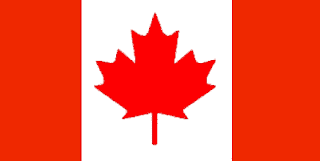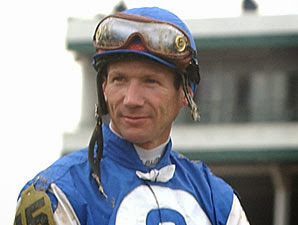From the big scrapbook of time, here’s a look at Canada in
1965-
 |
| The compact Valiant is built in Windsor, Ontario. It is one of the five brands in the ChryCo family. |
January 1:
Cartwright, Newfoundland and Labrador takes a pounding as a record 182
centimetres of snow buries the town.
January 1: Trans-Canada Air Lines has a new name. The Crown
corporation will henceforth be known as Air Canada. In the early 21st
Century it will be the 11th largest air carrier in the world.
January 8: The Tilikum goes on display at the Maritime Museum in Victoria, British Columbia. The 10.9-metre red cedar dugout Nootka Indian canoe made a 65,000-kilometre voyage--leaving Victoria BC in 1902 and arriving in London, England on September 2, 1904. The trip, by way of Australia, lasted three years, three months and twelve days.
January 9: Four people are killed in Hope, BC when 46
million tonnes of rock and mud slide 2,000 metres down a mountainside, trapping
travellers in their vehicles. Triggered by an earthquake, the Hope Slide is one
of the worst avalanches in our history.
January 16: Prime Minister Lester B. Pearson and US
President Lyndon B. Johnson sign Auto Pact, This historic trade agreement
allows manufacturers to transship vehicles to each other’s countries without
tariffs.
 |
| American Motors Canada Limited will be the only automaker to ship cars to the USA every month of this year. |
January 28: Queen Elizabeth II signs a royal proclamation
declaring that Canada will have a new flag. The flag debate has been bitter but
the simple maple leaf design will become one of our most enduring national
symbols.
 |
| The Red Ensign |
February 15: The maple leaf flag is hoisted over the
Parliament buildings for the first time. Tens of thousands of Red Ensigns are
lowered for the last time all over the country at the same time and the new
flag hoisted as the ceremony takes place in Ottawa.
February 17: Ships give wide berth as a 65-kilometre wide
ice field moves down the coast of Newfoundland. It is the largest ever
recorded.
March 1: Stewart Elliot is born in Toronto. He will grow up
to be a thoroughbred jockey and in 2004 he will be the first in 25 years to win
the Kentucky Derby in his first appearance.
March 1: Parks Canada announces $6 million for the creation
and development of Kejimkujik National Park in southwestern Nova Scotia. The
new park will cover 381 square kilometres and begin welcoming visitors in 1967.
 |
| The explosion left a six-metre deep crate. |
March 1: A natural gas line explodes, levelling a three-storey apartment building in the Montreal suburb
of Lasalle. The death toll is 28 people, 39 injured and 200 people are homeless.
 |
| Bordeaux Prison is the largest penitentiary in Quebec. |
March 2: Convicted heroin dealer and illegal weapons dealer
Lucien Rivard climbs down a wall via water hose to escape from a Montreal
prison. He will be on the lam for four months before being captured. While on
the loose, he will write a letter to PM Pearson that says, “Life is short you
know. I don’t intend to be in jail for the rest of my life.”
March 7: Pope John XXIII allows mass to be said in French or
English instead of Latin.
 |
| MUN was established in 1925. |
March 8: The government of Newfoundland and Labrador will
grant free tuition to first year students attending Memorial University. No
other institution of higher learning in this country has ever done such a
thing.
March 14: A crowd of 2,000 Canadians including four MPs and
25 clergy march to the US embassy in Ottawa as a show of solidarity with the
American civil rights movement. Prime Minister Pearson addresses the crowd,
praising them for their convictions.
March 29: The Canada Pension Plan is approved by Parliament.
Quebeckers will have their own version of the retirement scheme, administered
by Revenue Quebec.
 |
| The Right Honourable Lester B. Pearson is the nation's 14th Prime Minister. |
April 2: The Prime Minister speaks at Temple University in
Philadelphia. He tells his audience that the United States must stop bombing
North Viet Nam. Mr. Pearson’s remarks not well received by US President
Johnson.
 |
| The Transatlantic being salvaged. |
April 10: The 7,800-tonne German freighter Transatlantic catches fire and sinks after colliding with the 5,700-tonne Dutch ship M.V. Hermes
in the St. Lawrence River, near Trois-Rivières, Quebec. Three sailors die in the marine disaster.
May 1: They take it to the wire but the Habs beat the
Chicago Blackhawks in game seven to earn the Stanley Cup.
May 5: Lakehead College in Thunder Bay, Ontario becomes
Lakehead University and confers its first baccalaureate degrees upon graduates.
May 10: Linda Evangelista is born in St. Catherines,
Ontario. She will grace the covers of more than 600 magazines. Linda will grow up to be a 1.78-metre tall supermodel famous for her quip, “We don’t wake
up for less than $10,000 a day.”
May 23: Ontario proclaims its provincial flag. It will retain
the traditional Union Jack in the canton and the provincial coat of arms in the fly.
June 1: Built by Canadian Vickers in Montreal, the
95.4-metre long ice breaker and cable ship CCGS John Cabot is put into service by the Coast Guard on
the Atlantic coast. It will be sold in 1994.
June 2: Catching up to the times, the Ontario government
announces that alcoholic beverages may be sold on flights departing from
airports within the province. Theatres, curling rinks and bowling alleys may
also sell booze. Restaurants may offer libations but they must be accompanied
by food.
 |
| Senators are appointed by the Governor General upon recommendation of the Prime Minister. |
June 2: Senators must now retire at the age of 75 according
to new legislation passed in the House of Commons.
 |
| Gloria Reuben will star in ER for six seasons. Her character will battle HIV in the hospital drama. |
June 9: Gloria Reuben is born in Toronto. The youngest in a
family of six kids, she will grow up to become a movie star famous for being in
Timecop and Nick of
Time. In 1996 People magazine
will name her one of the 50 most beautiful people in the world.
June 15: It is announced in Parliament that the CBC will
begin broadcasting in colour on July 1, 1967—to coincide with Canada’s 100th
birthday.
June 28: The Trans-Canada Highway is now open in
northwestern Ontario between Fort Frances and Atikokan.
June 30: The Dominion Bureau of Statistics reports that
38,327 Canadians have emigrated to the United States in the past twelve months.
Dominion Day: The Premier of Manitoba earns $14,500 a year.
The Premier of Prince Edward Island earns $8,000 for doing the same job.
July 8: A bomb rips apart Canadian Pacific Airlines Flight 21 en route to Whitehorse from Vancouver. The DC-6 explodes over Dog Creek, British Columbia. All 52 on board are killed. The bombing remains a mystery to this day.
 |
| Federal and provincial flags in 2013. |
July 19: The First Ministers conference opens in Ottawa. For
the first time in history delegations representing the Northwest Territories
and the Yukon are included.
July 22: The Ontario Court of Appeal in Toronto grants
Canadian citizenship to an atheist immigrant couple. Ernest and Cornelia
Bergsma of Holland were previously denied citizenship in this country because
they do not believe in God.
July 27: Workers at the Heinz factory in Leamington, Ontario
strike. Farmers worry what will happen to their tomatoes and cucumbers .
Members of Local P-459 will sign a new deal in 24 days.
August 28: Shania Twain is born in Windsor, Ontario. She
will grow up to become a pop and country singer with a string of hits and sales
of more than 60 million albums.
September – A new programme debuts on CBC FM. Ideas, radio for the mind, will have
more than 400,000 faithful listeners and still be popular in the 21st
Century.
September 9: A report recommends that Ottawa form an agency
to oversee broadcasting. Creation of the Canadian Radio and Television
Commission will be the result in 1968.
September 13: At a cost of $31 million, Toronto’s new City
Hall is dedicated by Governor General Georges Vanier. Designed by Finnish
architect Viljo Revell, his design called for two elegantly curved towers to
flank the two-storey Council Chamber building.
September
15: Ontario Premier John Robarts is in Leamington along with company officials
to open the $9 million upgraded Heinz production facility. The factory will close in 2014.
September 23: Inco, the nation’s largest mining company,
announces it will spend $79 million to expand its operations in Sudbury.
October 5: Mario Lemieux is born in Montreal. He will grow
up and strap on skates for the Pittsburgh Penguins and wind up owning the NHL
franchise.
October 5: Patrick Roy is born in St-Foy, Quebec. He will
tend goal for the Montreal Canadiens and the Colorado Avalanche. St. Patrick
will be voted NHL’s greatest goalie in 2004.
October 6: Newfoundland Premier Joey Smallwood tells the
press that there will be free tuition for university students.
 |
| 1965 Renault 16 is a large and roomy fastback model. |
November – SOMA begins production of selected Renault and
Peugeot automobiles in Beloil, Quebec. Assembly will cease in 1973 when workers go on strike.
November 8: The Liberals, under Lester B. Pearson, will form
a second minority government. Pearson names World War Two Japanese army code
cipher clerk Judy LaMarsh to his cabinet.
November 9: Much of eastern North America is plunged into a
blackout after an Ontario Hydro failure at the Niagara Falls generating
station. Some 25 million people are without hydro for up to 12 hours. New York
City is especially hard hit. The incident will be made into a Hollywood comedy,
starring Doris Day, entitled, Where Were
You When the Lights Went Out?
November 27: The Hamilton Tiger Cats whip the Winnipeg Blue
Bombers 21 to 16 to win the Grey Cup. Held at the CNE Stadium in Toronto, the
winds are so strong that the 53rd fall football classic will be
referred to as the Wind Bowl.
November 29: Research
satellite Allouette II is launched
from California. It will study the ionosphere until it is terminated on August
1, 1975.
December 25: Folks have bought $1.1 million worth of UNICEF
cards from kids who came door-to-door before Hallowe’en and Christmas. Ottawa
matches our generosity with another $1 million.
December 31: We spent $4.5 billion on gasoline this year to
fill up the 6.9 million vehicles that run the nation’s roads.






































No comments:
Post a Comment